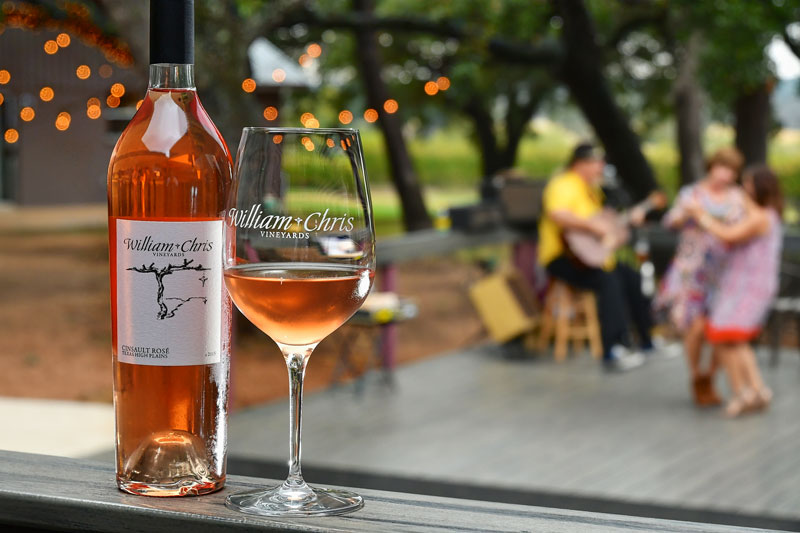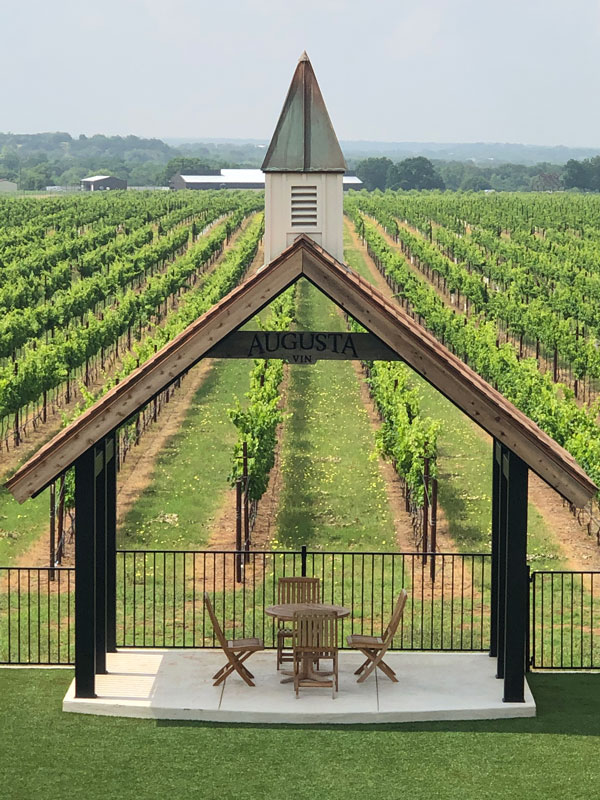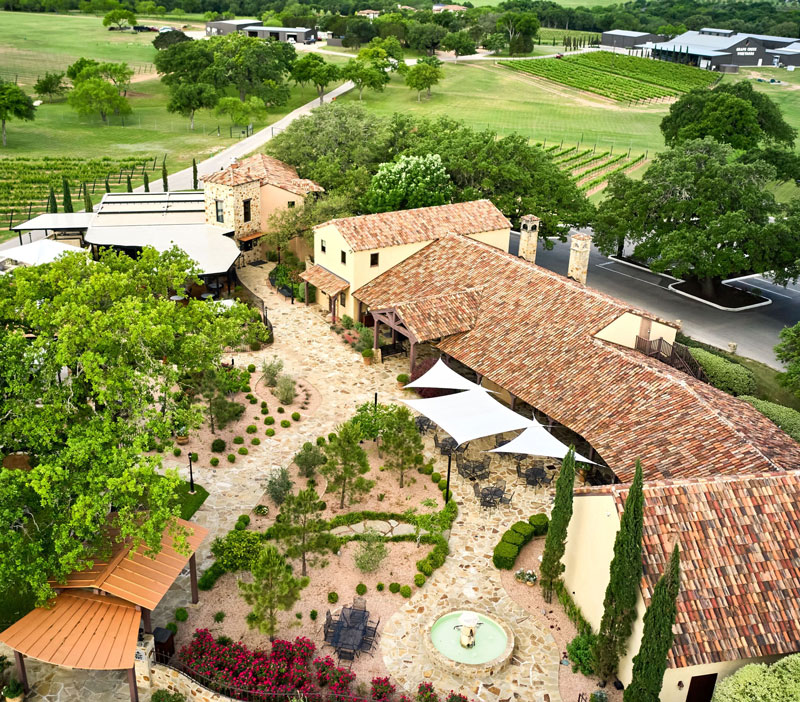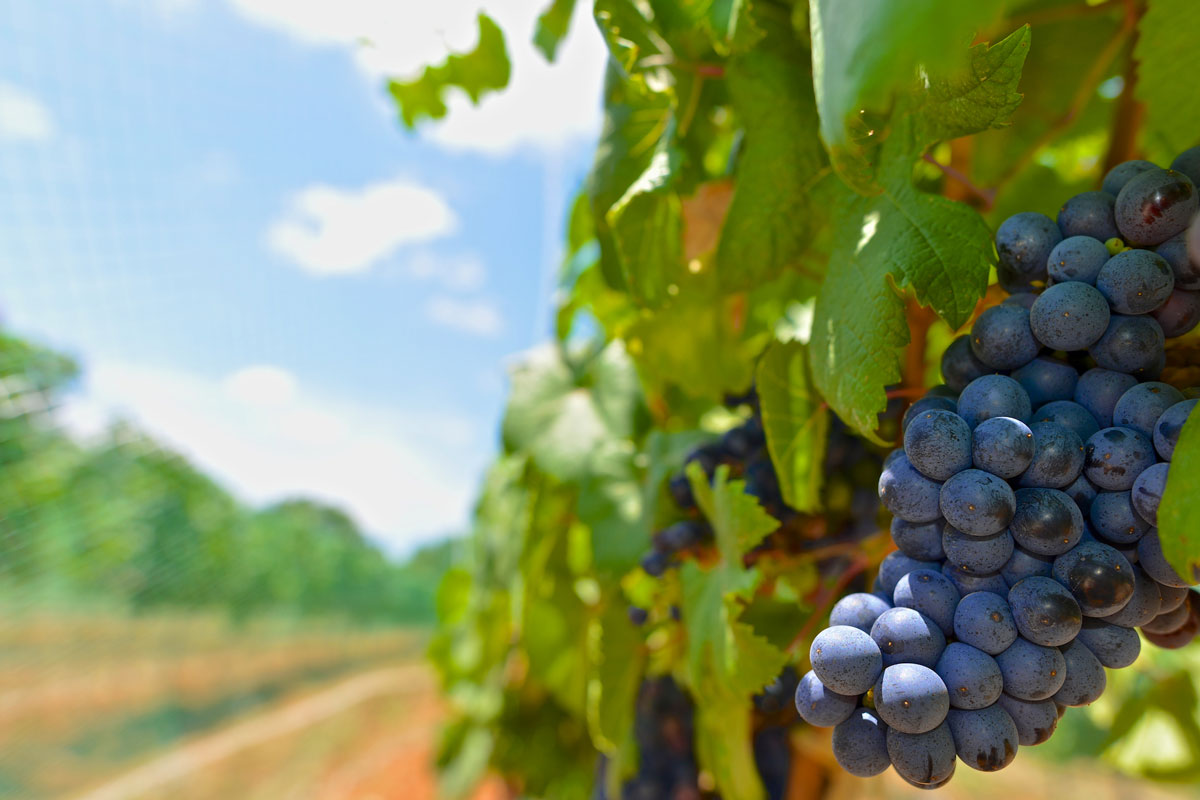The wrath of COVID-19 has unleashed havoc around the world, sending new warning terminology like “Flatten the Curve,” “Social Distancing,” “New Mandatory Orders” and most recently, “It’s Your Responsibility.” It also created high unemployment, stock market declines mixed with furloughs (unpaid leave with guaranteed jobs at a later date). It’s a daunting scenario on the macro level, yet here in Texas Wine Country leaders in the winery arena have taken steps to pivot through the fire.
Through the COVID-19 turmoil we need to remember Texas stands proud, boasting one of the oldest wine-growing regions in the U.S. with vines planted more than a hundred years before even California and Virginia. Starting in the 1650s, Franciscan priests planted mission vines near El Paso. We even had horticulturist Thomas Munson use Texas vines, providing significant research and securing much-needed rootstock immune to the Phylloxera epidemic, and saving the French wine industry from total ruin. Sadly, Prohibition in the U.S. virtually eliminated the Texas wine industry until a revival in the 1970s bringing winery and new tourism life back to the state.
Here in Texas Hill Country we have over 60 wineries with many new winery permits pending. These attract millions of visitors from around the nation and bring much-needed revenue to the area. Yet with the pandemic shutdown, creative operational solutions were needed to keep Texas Hill Country wineries afloat.

Brian Heath, proprietor of the iconic Grape Creek Vineyards and Heath Sparkling Wines, made his 110 employees top priority, creating IT solutions to work remotely where possible and maintaining payroll, tips and bonus programs. All this was done even in advance of securing a PPP government loan. He even offered high-risk employees extra time off before returning to work.
Secondly his team crafted a sale’s rechannel initiative, pushing tasting room sales to online by offering a rare 25% discount. With his wine club, they made outbound calls assuring members with financial hardships, allowing a skip shipment option never used previously, and actually saw an increase over normal retention levels. Before reopening, he redesigned customer flow and seating to ensure safety standards and improve employee morale.
“It’s like the old saying, Let’s make sweet lemonade out of sour lemons. I was worried we would have high wine club attrition, yet our members supported our efforts online during the shutdown, which is a positive loyalty sign,” Heath said. “On the flip side, operating costs have gone up during the reopening phase mainly due to safety standards. A good example, five times more use of paper towels alone.”

Scott Felder, CEO of Augusta Vin Estate, an artisan, 100%-Texas winery with estate focus, also had employees’ jobs as a top priority. Using PPP funds, he crossed-trained tasting room personnel to work in his 60-acre estate vineyards, thereby increasing the educational tasting experience offered within his modern, spacious timber oaks tasting room. His sommelier team also developed a new education platform and email campaign that lifted online sales and now carries over into the reopening tasting experience.
“Like most, the winery and hospitality industries have had to navigate difficult unchartered waters with the coronavirus lock down. The federal Paycheck Protection Program (a part of the CARES Act) were a big help in allowing many to maintain payroll to their employees,” Felder said. “We at Augusta Vin had only six months of operations since our grand opening in early September of 2019 when the mandated closures occurred, but we decided early on to keep all of our staff on the payroll through the period.
“We utilized non-production employees to help in the vineyard-production facility during the two months of closure. Wineries had to continue with all vineyard and production operations in spite of the lack of revenue and that makes it especially difficult,” he added. “We are thankful to be welcoming business back to a safe Augusta Vin environment during the last month, and find that people are loving new, refound visits to Texas Hill Country. Since most Texas residents will not be flying to vacation destinations this year, the wine country in Central Texas is proving to be a great option for a beautiful get away that is close by car.”
Another winery leader in the Texas Hill Country, William Chris Winery flexed its marketing muscle by creatively formatting a compelling series of virtual tastings to offset closure sales. They were the first winery to close coupled with a delayed opening to ensure safety standards for employees and guests visiting the tasting room.

“Our values at William Chris take hold in good times and bad. In times of need we come together as one,” co-owner Chris Brundrett said. “We started tracking the COVID-19 one month in advance and reallocated one million dollars to protect the interests of our employees, the 28 families that grow our grapes and treat the public like family. We felt it was important to understand the true meaning of health by helping all, mentally and financially. That included calling wine club members personally, crafting a private label red blend (Wonderer Relief Project) and raising $45,000 for workers in the service industry.
“Bottom line is we had to work twice as hard to make half as much, but we prevailed supporting all that believed in that value,” Brundrett said.
Texas Wineries have a blessed character and believe this Abraham Lincoln quote reflects that sincerity: “Character is like a tree and reputation is like a shadow. The shadow is what we think of it: the tree is the real thing.”
One thing for certain, the COVID-19 Texas winery pivoting journey has pushed many to help one another. It has kept winery workers employed, consumers safe and the virus spread in check. That’s a monumental tree.


